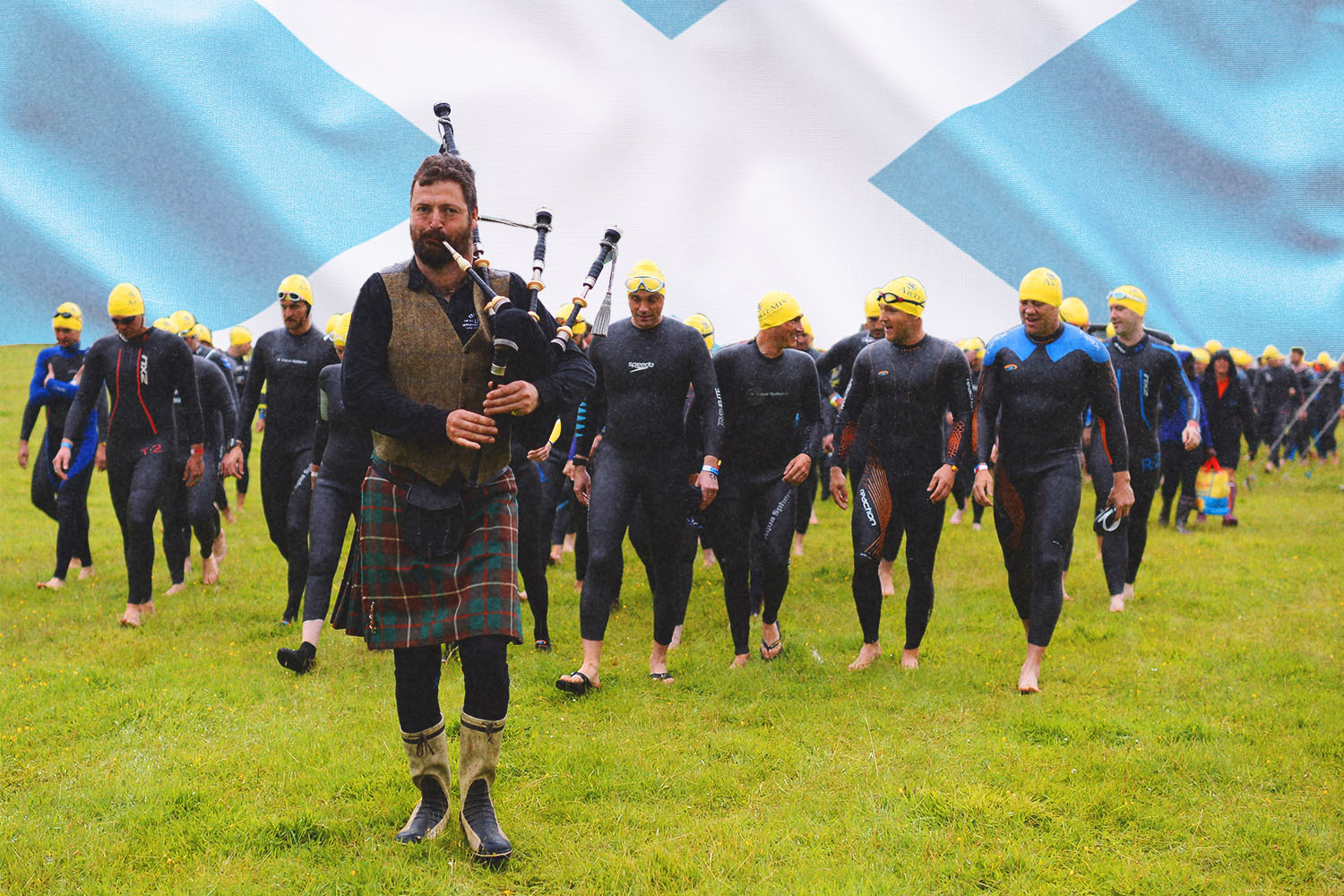Whatever your thoughts on Forrest Gump — elemental Americana or overrated mush — you probably remember feeling something stir in your bones during the film’s cross-country montage.
Gump runs through meadows and mountain ranges in some of the country’s most beautiful corners, as Jackson Browne’s “Running on Empty” plays in the background. After two years (or roughly six minutes, in movie time), he decides he’s exorcised whatever it was that was haunting him, and starts walking home.
Forrest Gump posits the cross-country caper as a spiritual journey. It’s one that’s been repeated dozens of times by real-life runners: in 1978, a man named Dave McGillivray ran from Medford, Oregon, to Medford, Massachusetts, in 80 days, raising money for cancer and finishing the final leg at Fenway Park. And that tradition is alive and well today: in 2021, a former MLS player named Hellah Sidibe ran from Los Angeles to New York in 84 days, becoming the first Black man to ever run across the United States.
As of late, though, these adventures have begun to intersect with the rise of competitive ultrarunning. Those accustomed to competing on the ultra circuit (where most prestigious foot races generally tally at least 100 miles) or tackling races in dastardly environs (Badwater, The Speed Project, etc.) are always looking for bigger, better places to bring their sport. While the speed of cross-country trips was once emphasized less, or flatly immaterial — running from Florida to Washington State, for example, doesn’t really compare to running from L.A. to New York — it was only a matter of time before the offbeat calling turned into a chance to set “course records.”
A week ago today, a man named Dave Proctor became the fastest man to ever run across Canada, as noted by iRunFar. Running from Newfoundland to British Columbia, he finished in 67 days and 10 hours. The effort shattered the previous mark of 72 days and and 10 hours.
To clear all of Canada in just over two months, Proctor had to run at an unfathomable clip of 65 miles per day. (For those counting at home, that’s two-and-a-half marathons a day, every single day, for five straight weeks.) It is one of the most astonishing athletic accomplishments most of the world will never know or care about.
In interviews after he reached the Terry Fox statue in Victoria, Proctor channeled a similar wonder for life and landscapes as Forrest Gump. “I’m blessed to have this opportunity and I’m grateful,” he said. “I’ve just seen the most beautiful country in the world, and I suggest every Canadian do the same very thing.”
Underlying that sense of spiritual appreciation, though, is an obvious competitive fervor — you have to be next-level motivated to take on this sort of challenge. And this was actually the second time Proctor’s attempted it. He had to turn around in Manitoba back in 2018. His girlfriend, Lana Ledene, was quoted by local press saying of the recent run, “He picked a target that he knew isn’t going to be broken for a long time, that was his goal.”
Perhaps it won’t be. But don’t be surprised when, over the next five to 10 years, more and more endurance athletes start to try. The current mark for the fastest run across America stands at 42 days, six hours and 30 minutes. It was set in 2016 by Pete Kostelnick. Earlier this year, an ultrarunner from Sarasota who regularly churns out 150 miles a week announced that he intends to break the record.
The Charge will help you move better, think clearer and stay in the game longer. Subscribe to our wellness newsletter today.

















